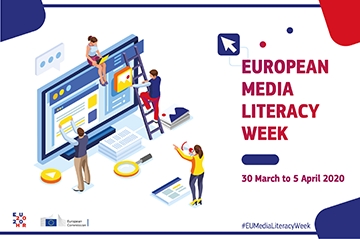About
This project will provide media literacy education to students and young people from socially and economically disadvantaged backgrounds, as well as to their parents and/or grandparents. They will participate in separate and joint workshops (students-only or parents-only and then students and parents together), where they will learn about disinformation and fake news on social media platforms. Our aim is to raise their awareness about these issues through accessible resources and equip them with the skills to support each other.
What is media literacy?
Media literacy in a broad concept encompassing all technical and cognitive skills needed to access, use, critically evaluate and create media content, including digital media, which prevails nowadays.
What is disinformation
and “fake news”?
Disinformation and fake news are two aspects of media literacy, and in this project, they will be the focus topics of our media literacy training programme. Disinformation and fake news are very common of social media platforms and a phenomenon that we encounter every day. The training will exploit existent educational resources and scale up best practices. According to the European Commission public consultation on disinformation and fake news in 2018, over 97% of citizens claim to have been exposed to fake news: 38% on a daily basis; 32% on a weekly basis. 74% consider social media and messaging apps as the primary channels through which they come across fake news.
The report also states that one of the key antidotes against disinformation is increasing the media literacy of pupils, adults, end-users and journalists.
What will the project do?
Increasing media literacy of pupils and adults is exactly what this project will do by:
- Taking stock of existing educational materials and best practices on the topic;
- Designing an outline for a media literacy training focused on disinformation and fake news with learning goals and outcomes (what people should know after completing the training);
- Developing separate modules for pupils and parents (5h for each group separately and 5 hours together = 10h in total for each group);
- Training 14 teachers and or/trainers from 7 countries to teach the short course;
- Testing the training programme with 250 people from disadvantaged background in 7 countries (20 pupils and 20 parents per country) during ALL DIGITAL Week / European Media Literacy Week 2020;
- Running a pan-European awareness-raising campaign “Get your facts straight!” with a launch event in Brussels in March 2020.
Some key features:
- The project is a key initiative in the framework of the Media Literacy Week launched by the European Commission;
- The resources will become a reference for any entity (school, NGO, library, etc.) that wants to organise media literacy workshops;
- They will be tested and refined, which will ensure high quality and relevance.



















